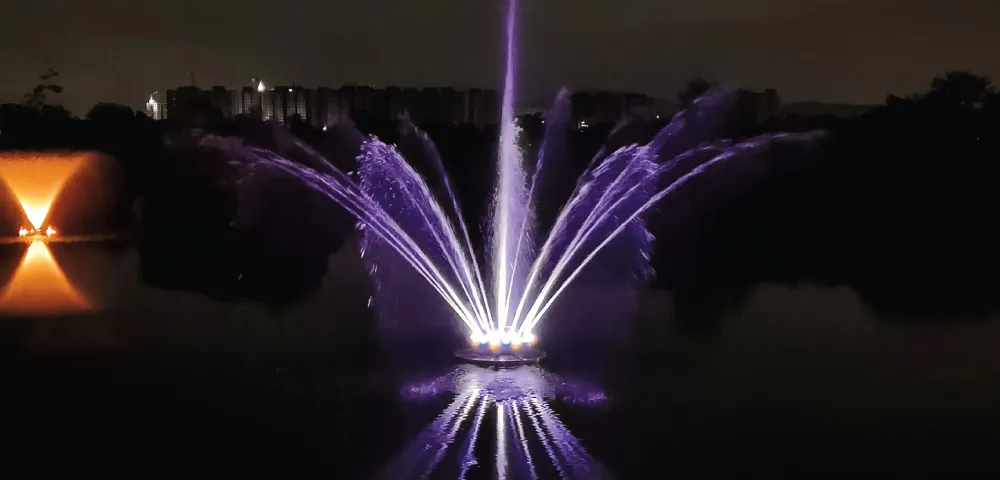How NRIs Can Use Power of Attorney for Real Estate Transactions
By lodha
October 15, 2025

The allure of Indian real estate remains strong for the global Indian diaspora. With rising demand for luxury homes, expanding infrastructure, and favourable long-term returns, NRI investment in Indian real estate continues to surge—particularly in metro cities and high-growth corridors. However, geographical distance can pose a practical challenge when it comes to managing legal formalities, particularly documentation and registration.
One solution that offers both convenience and legal standing is the power of attorney for property. When structured correctly, it allows Non-Resident Indians (NRIs) to complete property transactions in India without being physically present, all while safeguarding their rights and interests.
What is an NRI Power of Attorney?
A power of attorney (PoA) is a legal document that authorises another individual—typically a trusted family member, legal advisor, or friend—to act on one’s behalf for specific activities. For NRIs purchasing or managing property in India, the power of attorney for property enables the appointed individual to carry out actions such as signing agreements, registering documents, collecting possession, or even selling the asset.
It is especially useful in scenarios where the NRI is unable to travel frequently or navigate the bureaucratic processes in person.
Types of NRI Power of Attorney
There are two main types of PoA relevant to NRI properties:
1. General Power of Attorney for Property
This allows the appointed individual broad authority to act on behalf of the NRI for multiple transactions—ranging from buying and leasing to managing maintenance and utilities. It is often used when the NRI expects to be away for an extended period.
2. Special Power of Attorney
This is more restrictive in nature and limits the agent’s authority to a specific task, such as executing a sale deed, registering a property, or collecting keys after possession. Once the action is completed, the PoA automatically ceases to be valid.
In both cases, it is advisable to define the scope of authority clearly to avoid misuse and ensure legal enforceability.
Steps to Obtain NRI Power of Attorney
The process to obtain a valid PoA while residing abroad involves several stages:
1. Draft the Document
Begin by preparing the power of attorney on plain paper. Clearly mention the details of both parties, the scope of powers granted, and the duration (if applicable).
2. Visit the Indian Embassy or Consulate
The drafted PoA must be signed by the NRI in the presence of an official at the Indian embassy or consulate in their country of residence. This step authenticates the document.
3. Notarisation and Attestation
Depending on the jurisdiction, local notarisation may also be required before or after embassy attestation.
4. Send to India
The attested document must be couriered to India, where it needs to be adjudicated within 90 days of receipt by the relevant district registrar office.
5. Adjudication by the Sub-Registrar
In India, the authorised attorney submits the document along with ID and address proofs for adjudication and stamping. This renders it legally valid for property-related transactions.
Format of the Document
While there is no rigid template, a standard general power of attorney for property should include:
- Full name, address, and passport details of the NRI
- Name and address of the person receiving the authority
- Clear mention of powers being granted (e.g., signing sale deed, representing in registration office, collecting possession, etc.)
- Duration or limitations, if any
- Signatures of both parties and two witnesses
- Authentication from Indian consulate or embassy
It is always advisable to seek legal assistance to draft the document in line with current regulations and the specifics of the transaction.
Relevance in the Current Market
With the real estate market in India becoming more structured and digitally integrated, NRIs are increasingly turning to remote mechanisms such as PoAs to execute transactions securely. Whether investing in premium apartments, luxury villas, or curated gated communities, this provision ensures compliance without compromising convenience.
Additionally, many real estate companies in India now offer end-to-end support to streamline the PoA process—particularly those specialising in NRI properties and cross-border transactions.
The Lodha Advantage
At Lodha, we understand the nuances and sensitivities involved in NRI investment in Indian real estate. As one of the most trusted real estate companies in India, we offer a seamless and transparent experience for our global clientele—including complete assistance with power of attorney for property procedures.
From legal documentation and embassy coordination to registration and possession formalities, our expert teams ensure that every aspect is managed with precision and discretion. Whether you’re acquiring a residence in South Mumbai, a lifestyle retreat in Alibaug, or a future-ready home in Pune or Thane, Lodha offers the assurance of trusted service, secure documentation, and homes of enduring value.
In Conclusion
For NRIs seeking to invest or manage property in India, a well-executed power of attorney for property is a vital legal instrument. It simplifies the complexities of real estate transactions while ensuring compliance and peace of mind. As the demand for premium NRI properties continues to grow, leveraging this tool—alongside the right developer—can make all the difference.
You may also like



 Enquire
Enquire
 Call
Call
 chat
chat
 Search
Search





